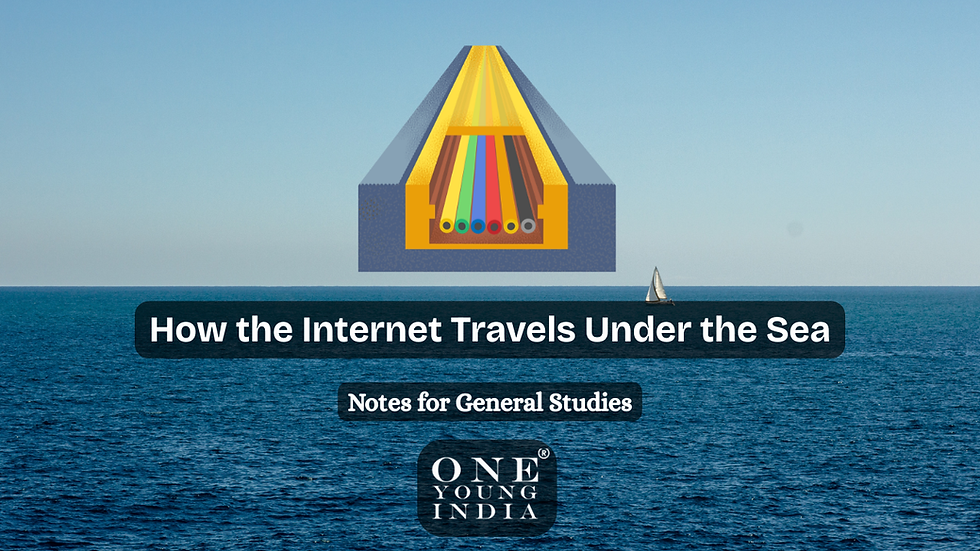Why Jupiter Is the Solar System’s Unsung Hero
- One Young India

- May 17, 2025
- 3 min read
It didn’t save the Earth in a Marvel movie—but it just might have in real life.
When we look up at the night sky, we’re often drawn to the glitter of Venus, the red glow of Mars, or the poetic loneliness of Saturn’s rings. But lurking out there, huge and humble, is Jupiter—the solar system’s silent guardian. At over 1,300 times the size of Earth, Jupiter doesn’t just impress with its size. It might just be the reason Earth exists at all.
Here’s why Jupiter deserves a whole lot more love—and why it's arguably the unsung hero of our planetary family.

The Ultimate Cosmic Shield
Jupiter is massive, so massive that its gravity dominates the outer solar system. In fact, it's 2.5 times more massive than all the other planets combined. That kind of gravity is like having a celestial bouncer at the door of the inner solar system.
Deflecting Death Rocks
Jupiter acts like a giant vacuum cleaner, pulling in or flinging away comets, asteroids, and icy intruders that might otherwise collide with Earth.
Shoemaker-Levy 9: In 1994, astronomers watched in awe as a comet shattered into pieces and slammed into Jupiter—pieces that could’ve been Earth-bound without Jupiter’s gravitational pull.
Oort Cloud Guardianship: Jupiter influences the orbits of comets in the distant Oort Cloud, steering them away from dangerous trajectories.
“Without Jupiter, we’d be getting hit by asteroids and comets far more frequently. It’s like having a big brother with a baseball glove, catching the incoming pitches.” — Amy Mainzer, NASA scientist
An Architect of the Solar System
Jupiter didn’t just show up—it shaped the very structure of our solar system.
The Great Migration
Some theories suggest that in the early days, Jupiter migrated inward toward the Sun and then outward again. As it moved, it scattered debris, carved out paths, and possibly pushed volatile material away, helping Earth become a rocky, habitable planet rather than a gas-covered one.
Without Jupiter’s influence, Mars might’ve been bigger.
Earth might have formed closer to the Sun, where water couldn’t survive.
In other words: no Jupiter, no Earth as we know it.
Keeper of Ancient Secrets
Unlike Earth, Jupiter has no solid surface—but it holds clues to the early solar system.
Its atmosphere is like a fossil record of the primordial cloud that birthed the Sun and planets.
Studying Jupiter’s composition helps us understand how planets form, both here and in exoplanetary systems.
NASA’s Juno mission has been orbiting Jupiter since 2016, uncovering wild facts like:
Its core might be fuzzy and diluted.
It has auroras stronger than Earth’s.
Its winds can reach over 300 mph—a stormy giant indeed.
A Solar System Within a Planet
Jupiter has 95 moons (and counting)—including some that are truly epic.
Europa – The Ocean World
Beneath its icy shell lies a liquid ocean, possibly holding more water than all of Earth’s seas combined—and maybe, just maybe, alien life.
Io – The Volcanic Inferno
The most volcanically active body in the solar system, spewing lava hundreds of kilometers high.
Ganymede & Callisto
The largest and most mysterious of the moons. Ganymede even has its own magnetic field.
Jupiter doesn’t just orbit the Sun—it practically hosts its own miniature solar system.
More Than Just a Giant
Jupiter might not have rings like Saturn, and it doesn’t inspire poetry like Mars, but it’s earned its crown many times over:
It protected us from extinction-level impacts.
It shaped our solar neighborhood.
It may hold secrets to life beyond Earth.
And it continues to awe and inspire with its sheer size and swirling storms—including the Great Red Spot, a hurricane larger than Earth that’s been raging for centuries.
Conclusion: The Hero We Never Noticed
Jupiter may not shine the brightest or sit closest, but it's played the quiet role of protector, architect, and enigma since the beginning of time. In the cosmic story of how we got here—and how we survive—Jupiter deserves a standing ovation.
So next time you spot that bright, non-twinkling “star” in the sky, give a nod to the giant that watches over us. Without it, life on Earth might never have happened at all.



